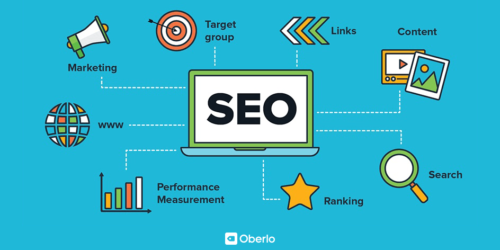Keyword research directly impacts the ROI from SEO marketing. The wrong selection of phrases will produce lower quality visits than if you had chosen your SEO keywords correctly.
How does this connection work? SEO marketing must be executed within a fixed amount of time and with a fixed amount of resources.

So when each month’s SEO budget or resources is exhausted, that’s it. There’s no redo, there’s no going back. You’ve already bought and paid for the content and technical SEO work.
If you do the right keyword research, you’ll be making the most out of each month’s SEO opportunity.
Below are three tips that I strongly suggest all SEO teams and marketers apply to ensure they’re targeting the most profitable phrases for the business they represent and making the most of their limited resources.
SEO Tips for Marketers
1. Use Google Trends as much as you use Google Keyword Planner
SEO marketing is tough but rewarding. One way to beat your competition is to use Google Trends.
Rather than plugging your primary search phrases into Google Trends, look up data on phrases you’ve recently heard customers or people in your industry use. Google Trends will tell you if any of these phrases is gaining popularity.
This keeps you from excluding a phrase from your list of targeted keywords just because it currently has low volume reported by Google’s Keyword Planner. Google Trends will let you know if you can expect an increase in searches for a phrase down the road, even if it doesn’t look popular right now.

Image courtesy steemitimages.com
Being able to spot SEO keywords on the rise before your competitors gives you a leg up. You can start building content that includes those phrases in the right on-page SEO locations. And that could have you at the top of page 1 for valuable new search traffic.
Google Trends can also help startups answer a key question: What are people calling our new product or service?
2. Focus on buyer intent
When you take too much of a scientific or data-based approach to keywords, buyer intent gets overlooked. For my consulting site, I didn’t do any SEO keyword research. I knew right off the bat what I wanted to target – “SEO consultant” & “SEO expert.”

Image courtesy of portent.com
It didn’t matter to me if the volume was low, or if the keyword difficulty was too high. If someone needed to hire a SEO specialist, that’s exactly the type of phrase they were going to search.
And if someone needed to hire a SEO specialist, they were already at the bottom of the sales funnel. They were ready to convert from web visitor to customer, and they were someone I wanted to hear from.
Make sure that you don’t get lost in the weeds or go after phrases that someone who “might” be a customer is typing into Google.
Those are fine down the road, but in the beginning, you want to blanket the bottom of the funnel.
3. Check where you rank before you start creating content
Not only is it possible for one web page or blog post to rank on the first page of Google for multiple phrases, it’s probable.
Google recognizes close synonyms and variants, and premium content with good on-page SEO and backlinks can rank on page 1 for dozens of phrases.
This means you may have inadvertently achieved page 1 rankings for a phrase further down your keyword sheet.
Always check Google Search Console to see if you already have a high rank for the next SEO phrase on your list. If so, you’ve saved yourself time and money by not having to create new content.
Cort Tafoya is a SEO consultant in the SF Bay Area. He’s been working in digital marketing for 7 years.

